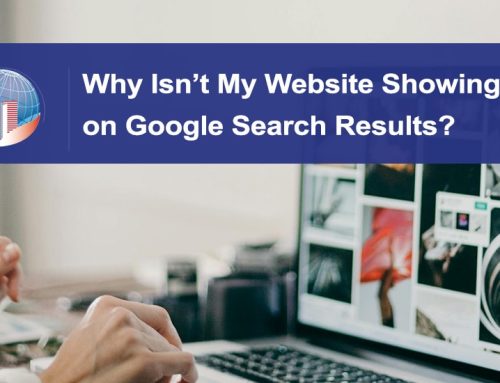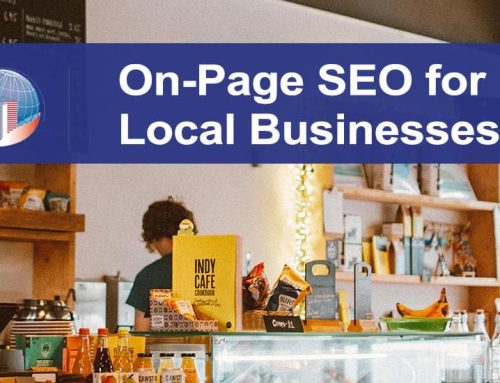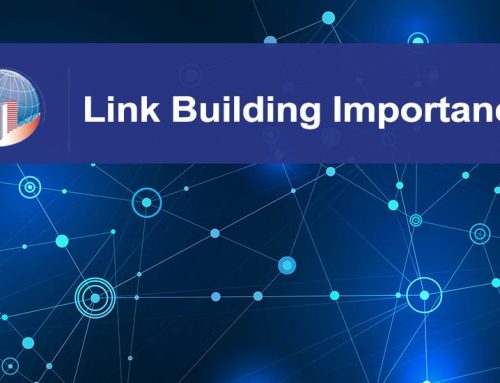
Off-page SEO is pivotal in improving your website’s visibility and authority. While on-page SEO focuses on optimizing elements within your site, off-page SEO encompasses external factors that influence how search engines and users perceive your site. These external strategies can significantly enhance your brand’s online presence when done right.
At Salterra, we emphasize holistic SEO strategies, including robust off-page SEO techniques, to ensure your website achieves sustainable growth in rankings and visibility.
What Is Off-Page SEO?
Off-page SEO refers to all activities conducted outside your website to improve its authority, relevance, and ranking on search engines. These efforts include obtaining backlinks, increasing brand mentions, and leveraging social media. Off-page SEO focuses on building trust and authority, signaling to search engines that your website provides valuable and credible content.
In addition to backlinks, off-page SEO encompasses social media engagement, influencer marketing, online reviews, and brand-building strategies. These components help your site stand out and establish itself as an industry leader.
Why Does Off-Page SEO Matter for Search Engine Rankings?
Search engines like Google evaluate more than just the content on your website. Factors such as backlinks, brand mentions, and user engagement signals indicate your site’s authority and trustworthiness.
Benefits of Off-Page SEO:
- Improved Search Rankings: Websites with strong off-page SEO signals often rank higher in search results.
- Increased Organic Traffic: Greater visibility in search engines leads to more clicks and visits.
- Enhanced Credibility: Positive online mentions and high-quality backlinks build trust with users and search engines.
- Broader Reach: Off-page SEO helps you reach audiences across multiple platforms, increasing brand awareness.
For local businesses, off-page SEO ensures that your business appears prominently in local searches and is a key driver of foot traffic and leads.
How Does Off-Page SEO Work?
Off-page SEO influences how search engines perceive the value of your site through external validation. Search engines use algorithms that consider signals such as:
Backlink Quantity and Quality
High-quality backlinks from authoritative sites significantly improve your website’s search engine rankings. These backlinks act as votes of confidence from other reputable websites, signaling to search engines that your content is valuable and trustworthy. At Salterra, we build a diverse portfolio of high-quality backlinks to enhance your site’s credibility and visibility.
Brand Mentions
Mentions of your brand, even without direct links, contribute significantly to your online authority. These mentions can occur in various forms, such as articles, blog posts, reviews, and social media discussions. Increasing brand mentions across multiple platforms ensures that your name is recognized and respected within your industry, which helps to establish trust and authority.
Social Media Signals
Shares, likes, and mentions on social media platforms enhance your online presence. Social media signals indicate to search engines that your content is engaging and relevant to users. Creating compelling content that resonates with your audience encourages them to share and interact with your posts, boosting your overall visibility and reach.
Domain Authority
Metrics like Moz’s Domain Authority (DA) gauge the strength of your site’s off-page SEO. A higher DA score indicates a more robust online presence and greater potential for ranking well in search engine results. Employing comprehensive SEO strategies to improve your domain authority involves focusing on on-page and off-page elements. You can achieve sustained, long-term success in your digital marketing efforts by continually enhancing your site’s authority.
The combination of these signals helps search engines determine the relevance and trustworthiness of your site, directly impacting its rankings.
How to Do Off-Page SEO
Optimizing your off-page SEO requires a well-rounded strategy that includes the following:
Backlink Building
High-quality backlinks are essential for improving your website’s search engine rankings and online authority. Focus on obtaining links from authoritative and relevant websites through various strategies:
- Guest Posting: Contribute valuable content to reputable blogs and websites within your industry. This provides a backlink to your site and positions you as an expert.
- Resource Link Building: Create comprehensive resources, such as guides, tutorials, and industry reports, that other websites will want to link to as a valuable reference.
- Broken Link Replacement: Identify broken links on authoritative sites and suggest your relevant content as a replacement. This helps webmasters fix their broken links while providing you with a quality backlink.
Social Media Engagement
Actively share your content across various social media platforms and engage with your audience to build trust and increase visibility. Here are some key practices:
- Content Sharing: Post links to your blog posts, articles, and other content on social media to drive traffic back to your site.
- Engagement: Respond to comments, participate in discussions, and interact with your followers to create a sense of community and loyalty.
- Consistency: Maintain a consistent posting schedule to keep your audience engaged and informed about your latest updates and offerings.
Encourage Online Reviews
Positive reviews on platforms like Google My Business build trust and influence local search rankings. Here’s how to encourage and manage online reviews:
- Ask for Reviews: Promptly ask satisfied customers to leave reviews after a positive interaction or purchase.
- Make It Easy: Provide clear instructions and direct links to your review profiles to simplify the process for your customers.
- Respond to Reviews: Show appreciation for positive reviews and address any negative feedback professionally and constructively to demonstrate your commitment to customer satisfaction.
Leverage Influencer Marketing
Collaborate with influencers to amplify your brand’s reach and credibility. Influencers can help you connect with a broader audience and add a personal touch to your marketing efforts:
- Identify Relevant Influencers: Choose influencers who align with your brand values and have a following that matches your target audience.
- Build Relationships: Engage with influencers by liking, commenting, and sharing their content before approaching them for collaborations.
- Collaborate on Content: Work with influencers to create authentic and engaging content, such as product reviews, sponsored posts, or social media takeovers, that resonates with their followers.
Create Shareable Content
Develop high-quality, engaging content that encourages sharing and drives organic traffic to your site. Focus on the following types of content:
- Infographics: Create visually appealing infographics that present information in an easily digestible format. Infographics are highly shareable and can quickly go viral.
- Videos: Produce compelling videos that tell a story, demonstrate a product, or provide valuable insights. Videos are a powerful medium for capturing attention and encouraging shares.
Guides and Tutorials
Write in-depth guides and tutorials that offer practical solutions to common problems or answer frequently asked questions. This content establishes your expertise and will likely be shared among peers and industry professionals.
By implementing these strategies, you can enhance your online presence, build trust with your audience, and drive more traffic to your website, ultimately leading to greater success in your digital marketing efforts.
Off-Page SEO Techniques and Strategies That Work
Here are some effective off-page SEO techniques to boost your rankings:
- Backlink Building: Backlinks remain the backbone of off-page SEO. Aim for quality over quantity by earning links from reputable sources relevant to your niche.
- Social Media Marketing: While not a direct ranking factor, social media boosts brand awareness and drives referral traffic, which indirectly supports your SEO efforts.
- Online Reputation Management: Maintain positive online reviews and address negative feedback promptly. User-generated content such as reviews plays a crucial role in off-page SEO.
- Content Promotion: Distribute your content through email marketing, forums, and online communities to increase its reach and attract backlinks.
- Local SEO: For businesses targeting local audiences, ensure your business information is consistent across online directories and review sites.
At Salterra, we specialize in creating off-page SEO strategies tailored to your business goals, ensuring long-term success in search engine rankings.
Local SEO Is Also Off-Page SEO
Local SEO is a specialized subset of off-page SEO that focuses on improving visibility within a specific geographic area. It involves strategies like:
- Google My Business Optimization: Claim and optimize your profile for better local search rankings.
- Local Citations: Ensure your business details are accurate and consistent across directories.
- Online Reviews: Encourage customers to leave reviews, as they significantly impact local SEO rankings.
- Localized Content: Develop content tailored to local audiences to boost engagement and relevance.
By integrating local SEO into your off-page SEO strategy, you can attract nearby customers who are actively seeking your products or services.
On-Page SEO vs. Off-Page SEO
While both on-page and off-page SEO aim to improve your website’s ranking, they target different aspects of optimization:
- On-Page SEO: Involves optimizing elements directly on your site, such as content, meta tags, URLs, and internal linking. This ensures your site is user-friendly and technically sound. There is a reason why on-page SEO is important for Local Businesses.
- Off-Page SEO: Focuses on external factors like backlinks, social signals, and online reputation. These efforts increase your site’s authority and trustworthiness.
For a successful SEO strategy, both on-page and off-page SEO must work harmoniously. While on-page SEO lays the foundation, off-page SEO builds your brand’s credibility and expands its reach.
Change Your Business Today
Off-page SEO, when executed effectively, is a game-changer for businesses. Whether you’re looking to increase your online authority or improve your local visibility, Salterra offers comprehensive SEO services to help you achieve your goals. Optimize your website using on-page SEO, but don’t overlook the vital role of off-page strategies in creating a well-rounded digital presence.
FAQs About Search Engine Optimization (SEO)
Why Trust Salterra
Salterra Web Design is a premier Tucson web design agency dedicated to helping local businesses thrive online. Since 2011, we have specialized in creating stunning, user-friendly websites for small—to medium-sized businesses in Tucson, Arizona. Our team of experienced web developers, graphic designers, and digital marketing professionals works together to provide comprehensive digital solutions tailored to your business needs.
At Salterra, we offer a wide range of services designed to enhance your online presence and drive business growth:
- Web Design and Development: We create beautiful, responsive websites that look great and provide a seamless user experience across all devices. Our designs are tailored to reflect your brand identity and meet your business goals.
- Search Engine Optimization (SEO): Our expert SEO services ensure your website is easily found by potential customers. We use advanced techniques to improve your search engine rankings, increase organic traffic, and boost your online visibility.
- Digital Marketing: From social media management to pay-per-click (PPC) advertising, our digital marketing strategies are designed to engage your audience and convert visitors into loyal customers. We focus on creating targeted campaigns that deliver measurable results.
- Content Marketing: Our team produces high-quality, engaging content that resonates with your audience and enhances your brand’s online presence. We help you build authority and trust through valuable and informative content.
- Website Hosting and Maintenance: We provide reliable hosting solutions and ongoing website maintenance to ensure your site remains secure, up-to-date, and performs at its best.
As a family-owned business, we offer personalized service and build long-term client relationships. Our commitment to quality work and fair pricing has earned us a solid reputation in the Tucson community. We understand local businesses’ unique challenges and are passionate about helping them succeed in the digital world.
If you are looking for a trusted partner to elevate your online presence, look no further than Salterra Web Design. Contact us today to learn how we can help your Tucson business grow with our expert web design and digital marketing services.
Contact Information:
Email: info.salterra@gmail.com
Phone: (520) 214-3729
Location: Tucson, AZ
Salterra operates in Arizona, with a strong presence in key regions such as Tucson, Tempe, Phoenix, and Chandler.
Our Locations
Web Design in Casa Adobes | Web Design in Catalina Foothills | Web Design in Marana | Web Design in Oro Valley | Web Design in Drexel Heights
Web Design Sahuarita | Web Design South Tucson | Web Design Green Valley | Web Design Vail



